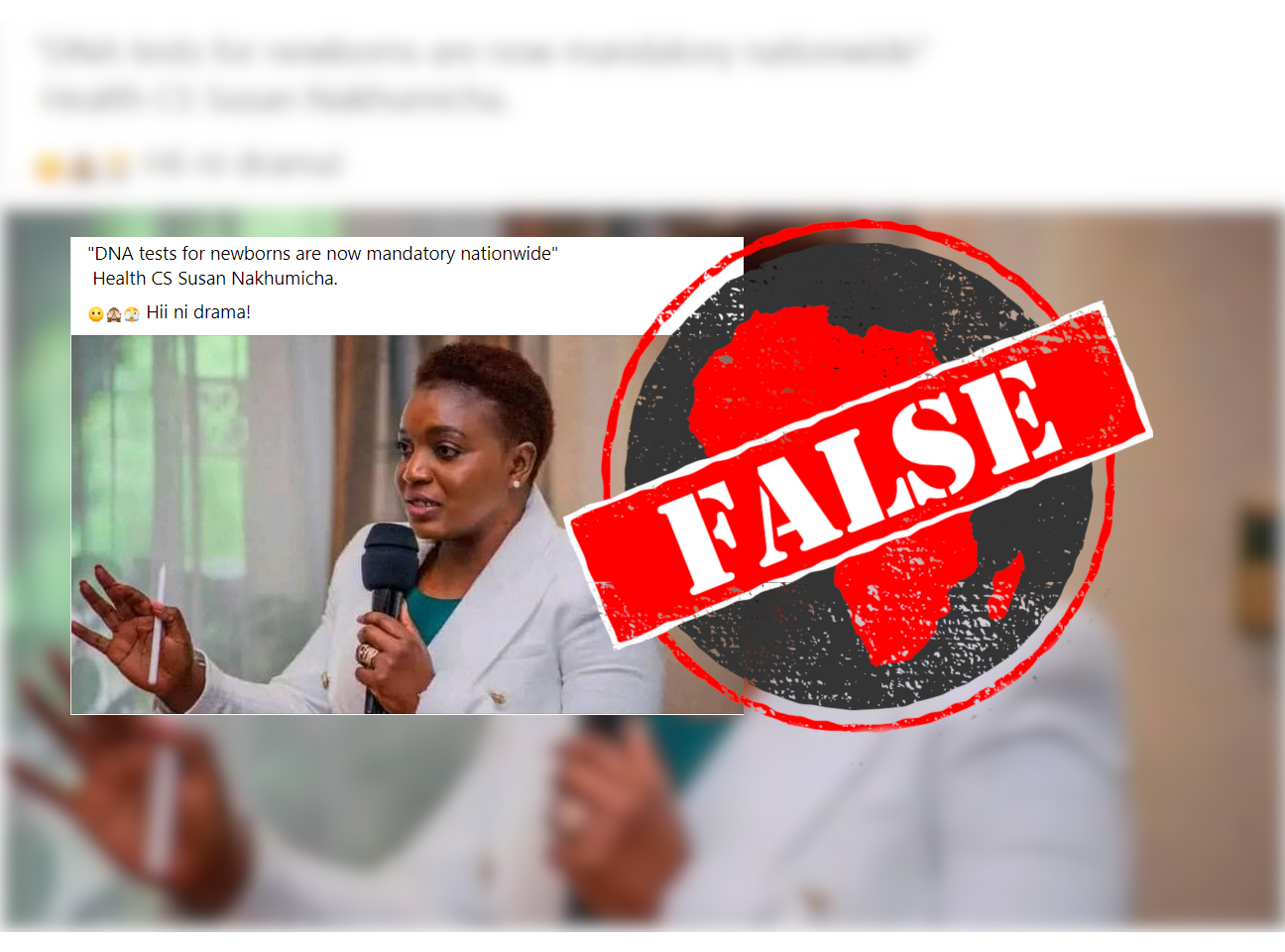IN SHORT: Some Facebook users in Kenya are claiming that the country’s cabinet secretary for health has said that DNA testing for newborns will be mandatory nationwide. But this is false.
A Facebook post doing the rounds on social media attributes a controversial quote to Kenya’s cabinet secretary for health, Susan Nakhumicha.
In the 4 April 2024 post, she is quoted as saying: “DNA tests for newborns are now mandatory nationwide.”
It features an image of Nakhumicha, while a screenshot of it is also circulating.

The claim comes as Kenyan doctors have been on strike since March, demanding better pay and working conditions. Nakhumicha is under pressure to end the stalemate between the health workers and the government.
DNA, short for deoxyribonucleic acid, is a kind of code that instructs the growth and development of organisms, including humans.
The phrase “DNA test” can mean a range of possible tests, from the expensive sequencing of a person’s entire genome to more limited genetic tests for a specific hereditary condition.
But in Kenya, the graphic has been widely interpreted to mean that the government will provide paternity tests – a type of test that determines whether or not a man is the father of a child.
DNA testing is a common topic in Kenya, especially when children of prominent families fight for inheritance of their deceased relatives, or in cases where ordinary married couples divorce and fight for child support from their estranged lovers.
The latest high profile paternity case involved prominent Kenyan athlete Kelvin Kiptum, who died in a car accident at the age of 24. He was buried on 23 February.
The claim about compulsory DNA tests for newborns has also been posted here, here, here, here, here, here, here, here, here and here.
But did Nakhumicha say that? We checked.
‘False and misleading information’
The statement is sensitive and could easily have been picked up by local and international media. Africa Check could not find such a quote broadcast or published by credible news agencies.
We scoured Nakhumicha’s verified X (formerly Twitter) account and came up empty.
We then contacted the office of the cabinet secretary in the ministry of health and asked if there was any truth to the statement.
“The attached screenshot depicts false and misleading information. Any support from your end to highlight that it's misleading and false information is appreciated,” they told us.
The ministry of health also debunked the claim on Facebook.
The claim is false and should be ignored.
In 2022, Africa Check debunked a similar claim going viral in Nigeria and South Africa.
Republish our content for free
For publishers: what to do if your post is rated false
A fact-checker has rated your Facebook or Instagram post as “false”, “altered”, “partly false” or “missing context”. This could have serious consequences. What do you do?
Click on our guide for the steps you should follow.
Publishers guideAfrica Check teams up with Facebook
Africa Check is a partner in Meta's third-party fact-checking programme to help stop the spread of false information on social media.
The content we rate as “false” will be downgraded on Facebook and Instagram. This means fewer people will see it.
You can also help identify false information on Facebook. This guide explains how.


Add new comment